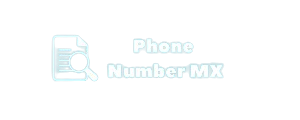The use of emails within the company must also be regulated within the framework of the IT charter. These may include confidentiality measures to be respected (for example, never mentioning certain sensitive information by email).It may also be a question of limiting the size of attachments that can be received or sent by email.
Regarding the use of professional email for private purposes, it is not prohibited. However, the employee must clearly identify personal emails (otherwise they would be considered professional Internet access and the employer would then have the right to consult them). To do so, he can, for example, create a dedicated directory in his mailbox.
In principle, access to the Internet for personal purposes in the professional context is tolerated within reasonable limits.
The IT charter may however provide for a list of sites (or categories of sites) that employees are not allowed to visit. It can also prohibit the downloading of certain files.
5. Possible penalties
The IT charter may provide for the penalties applicable in the event of non-compliance with the rules set out. However, these must not be contrary to the law (in particular the Labor Code) nor be too excessive.
Dismissal is a possible sanction, ignorance and non-compliance with the IT charter may constitute serious misconduct.
6. Rules for creating and managing passwords
Very important point! The IT charter must include training Internet access and awareness on the importance of choosing a strong password . Consider including rules for creating and changing passwords.
This document should also include Thailand Phone Number List specific requirements for password complexity and length. He must make employees aware of the risk of using an easy word or including personal information.
7. Remote Access
In a context of popularization of teleworking , the IT charter must define a framework. This minimizes the risk of hacking or spying.
The IT charter must therefore include provisions concerning the sending or receiving of emails and the use of intranet resources. The company may require the traveling employee to provide VPN access , the installation of anti-malware software and the use of recent operating systems.
For example, employees must not:
- Engage in illegal activities on their remote access;
- Allow unauthorized users to use their work device;
- Connect personal devices to business tools.
The IT charter must also impose disconnection when they Internet access leave their device alone, and the prohibition to connect to other networks when they are connected to the internal network.
This document may also include Wi-Fi connection Phone Number MX rules, especially for employees who travel regularly. The latter, having to connect to public Wifi, must be made aware of good practices to secure their connections.







